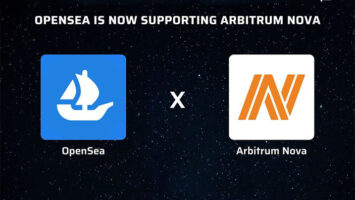SNEAK PEEK
- OpenSea has released theft detection as well as prevention measures.
- Scam links on the platform are detected & disabled by one feature and the other feature finds stolen NFTs and blocks them from reselling.
- There’s a constant need for both evolution and new solutions since scammers and attackers tap new and sophisticated exploits.
OpenSea has launched a pair of features to safeguard users from scams on OpenSea and forbid thieves or attackers from flipping stolen assets.
1/ Stolen items and scams are big issues in the NFT space. So, we’ve been hard at work on 2 new solutions to address both on OpenSea:
— OpenSea (@opensea) November 2, 2022
Introducing Malicious URL Detection and Removal 🚫 and Theft Detection and Disablement 🔐
Among the solutions, one is to prevent suspicious links from featuring on the marketplace through a website icon and project description. Upon scanning links entered by users on OpenSea, the tool disables links that look like scams or redirect to websites that have harmful code that can empty a user’s wallet by swiping NFTs.
OpenSea is looking forward to contract behaviors or functions that indicate a possibility of an attack to steal assets.
OpenSea’s VP of Operations, Marketplace, and Integrity, Anne Fauvre-Willis, said that this is something they are looking for in the simulation. And if it can’t be asked from a third-party site then they will first disable the link and then take action against users who are behind sharing of such links, which includes banning accounts, rejecting asset transfer requests and removing NFT projects created by such users.
Another theft prevention measure is a tool that examines NFT transfers automatically and identifies the ones that might have been swiped via exploits. The NFTs will be blocked temporarily to stop their reselling on the marketplace.
Fauvre-Willis shared that the real-time system is in testing phase and will be released via a confined pilot program that depends on several industry data sources and various types of steps taken while transferring the item between wallets. Also, it looks for other actions by the wallet during the same time that may indicate malicious activity.
OpenSea is also thinking about NFTs that are flagged when a newly-bought asset is transferred from one wallet to another wallet. Minimizing wrongly flagged assets as much as possible is the goal.
In the coming months, the automated system will be trained before it expands to users. Attempts are made to ensure the false positive rate remains the least.
An NFT flagged as possibly stolen will be frozen on OpenSea; hence, can’t be resold. The earlier owner will be emailed to see if it was stolen, who if confirms, that the NFT was lawfully transferred or doesn’t respond for seven days, then the NFT will be unfrozen back.
The marketplace was criticized for its previously stolen NFT policies since buyers who bought a swiped NFT had to go through the hassle of having it frozen on OpenSea.
OpenSea is also working with the makers of Coinbase Wallet and MetaMask to share top-notch practices and information on reducing scams. Moreover, its copymint system is now enhanced to identify and remove duplicate NFTs in just a few seconds of minting.
We’re launching a new copymint detection system today that can identify exact matches, flips, and fuzzy copies within seconds of a mint.
— OpenSea (@opensea) October 31, 2022
Check out this video from Mitch, one of our engineers, showing the system in action! ⚡️
More info 👇 pic.twitter.com/IPKo0eJlac









